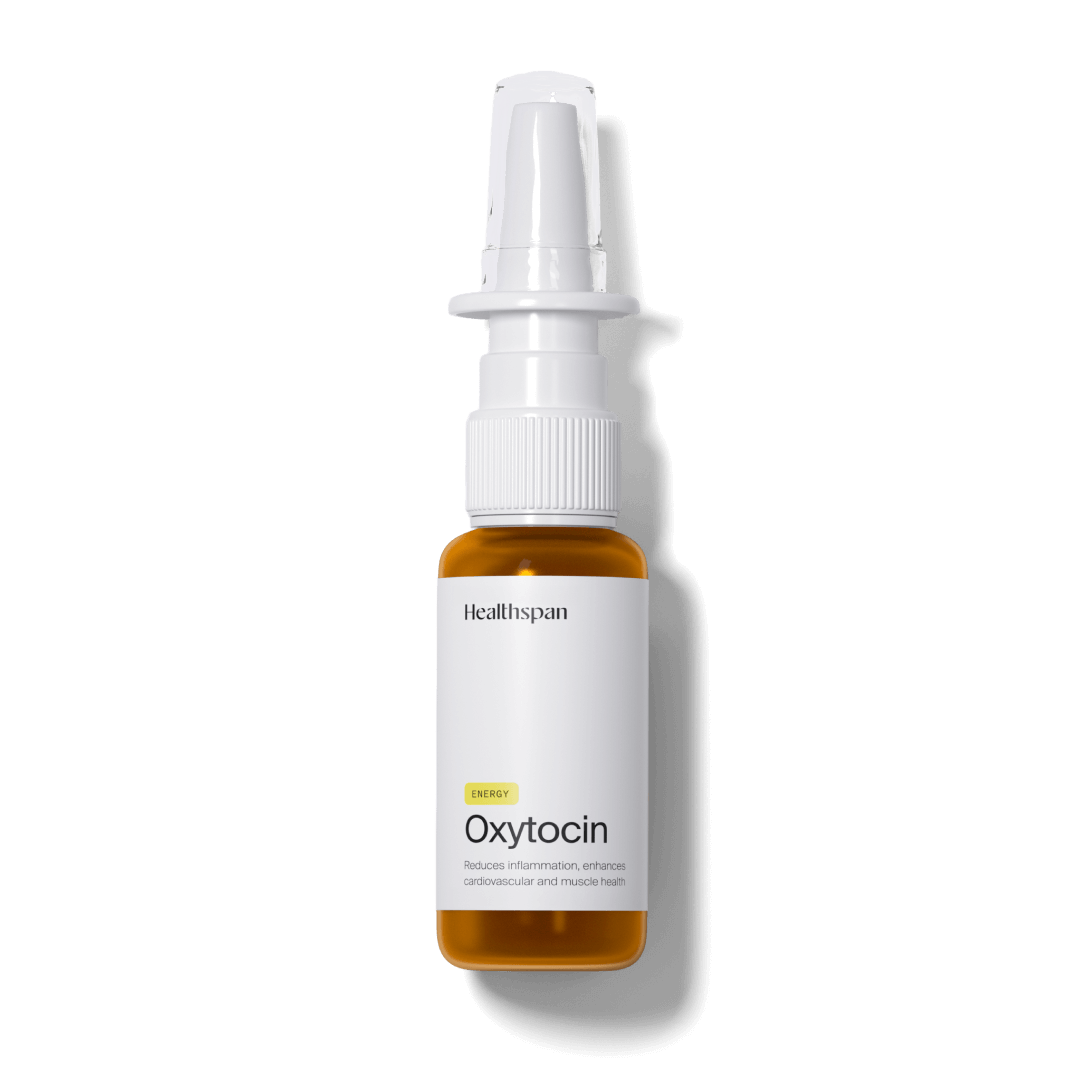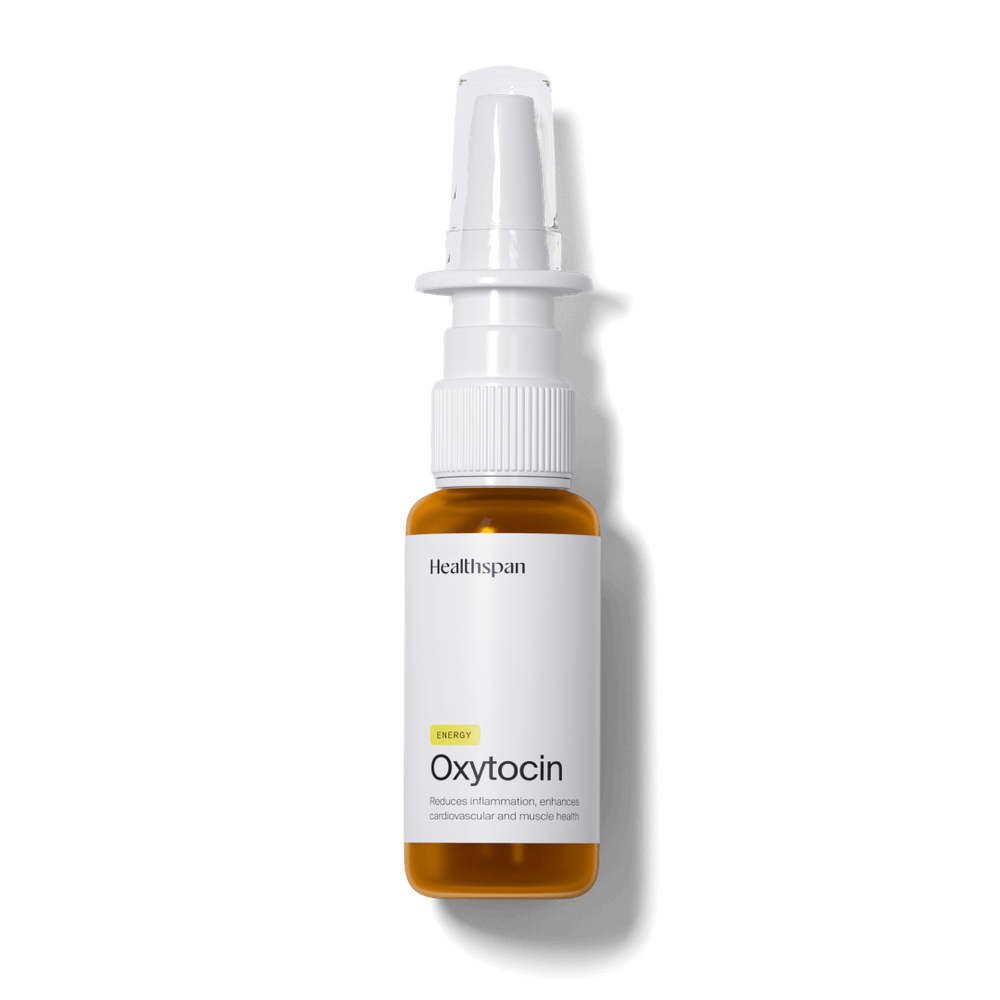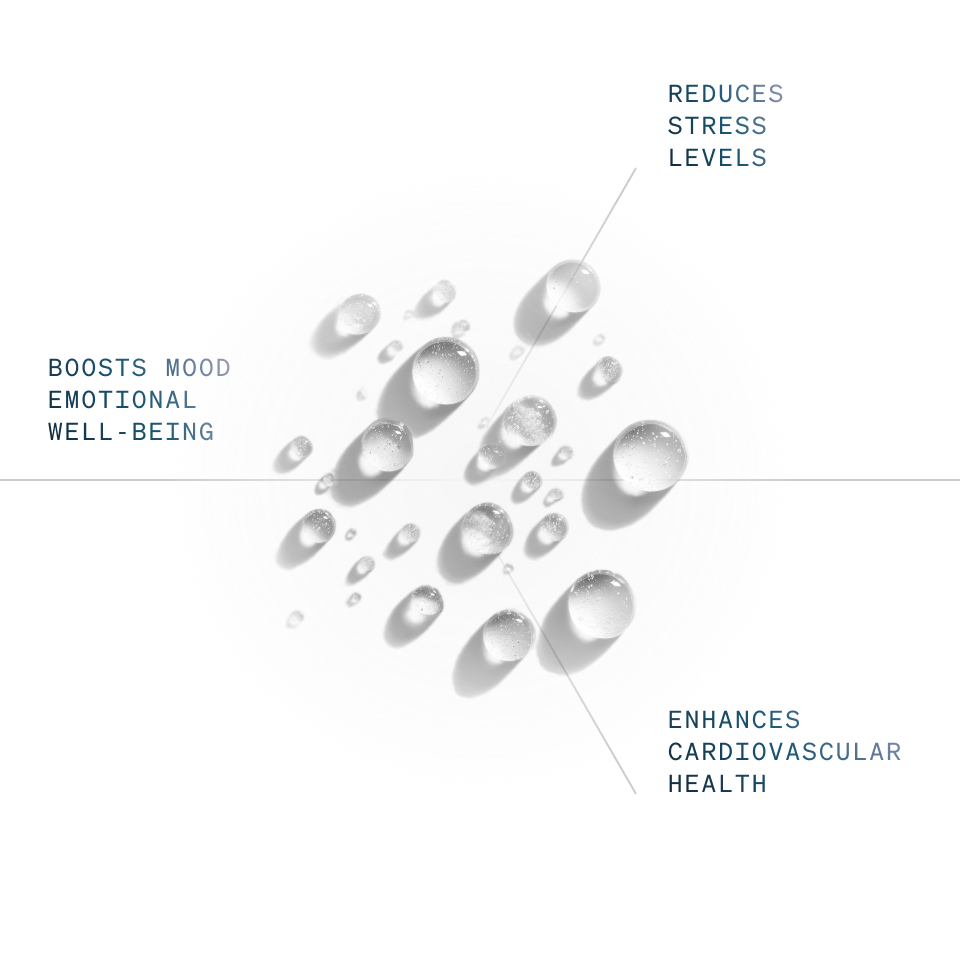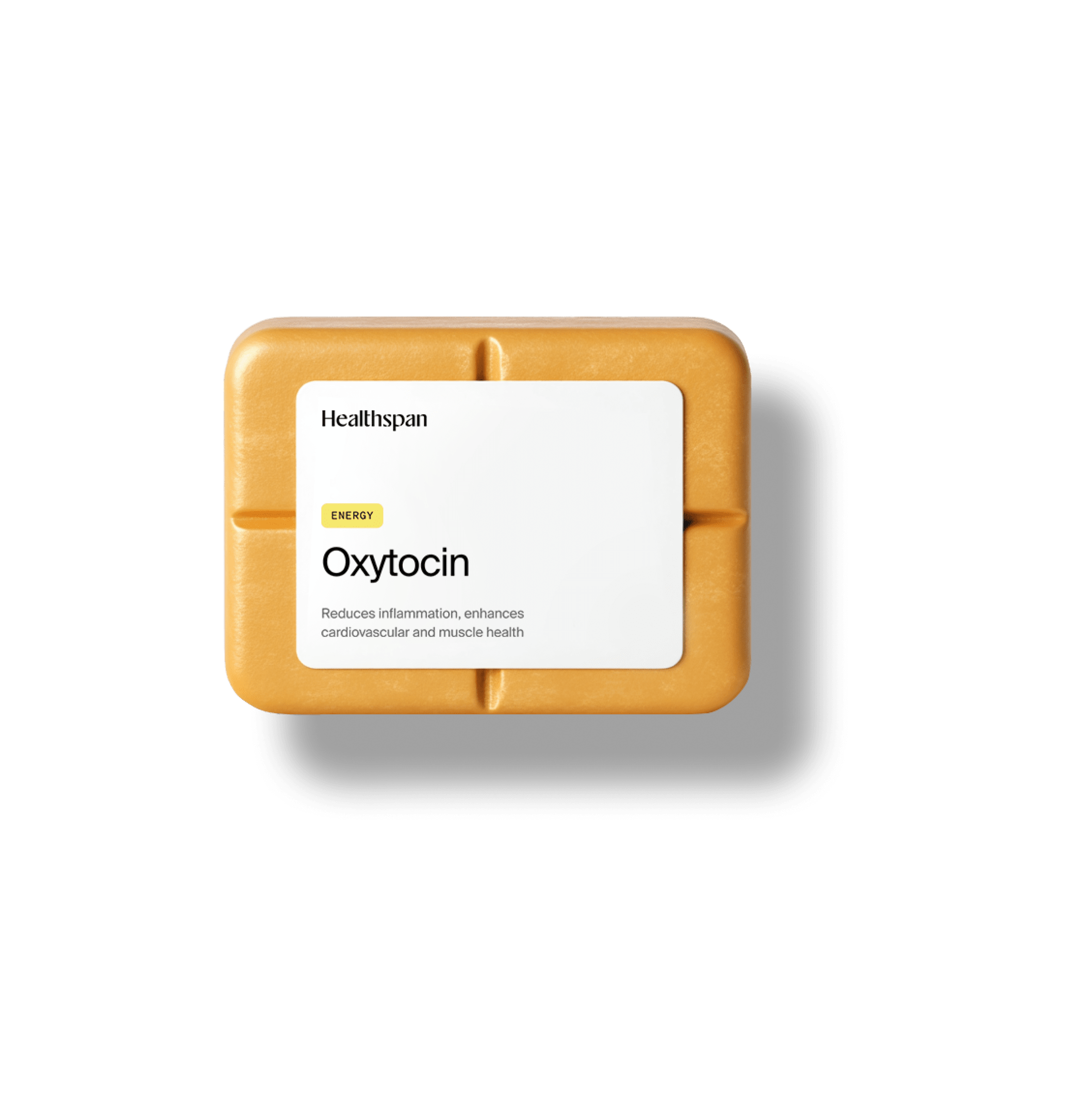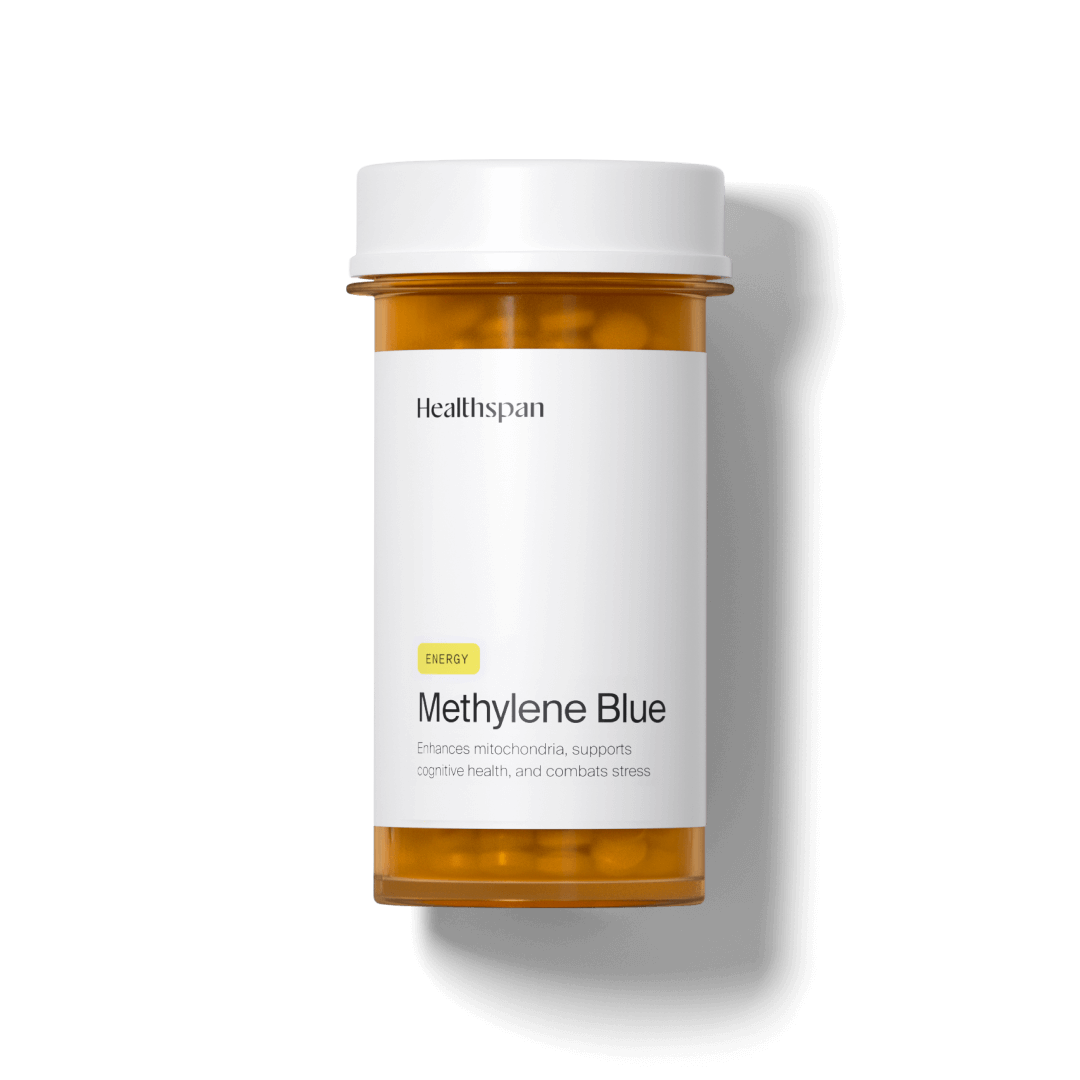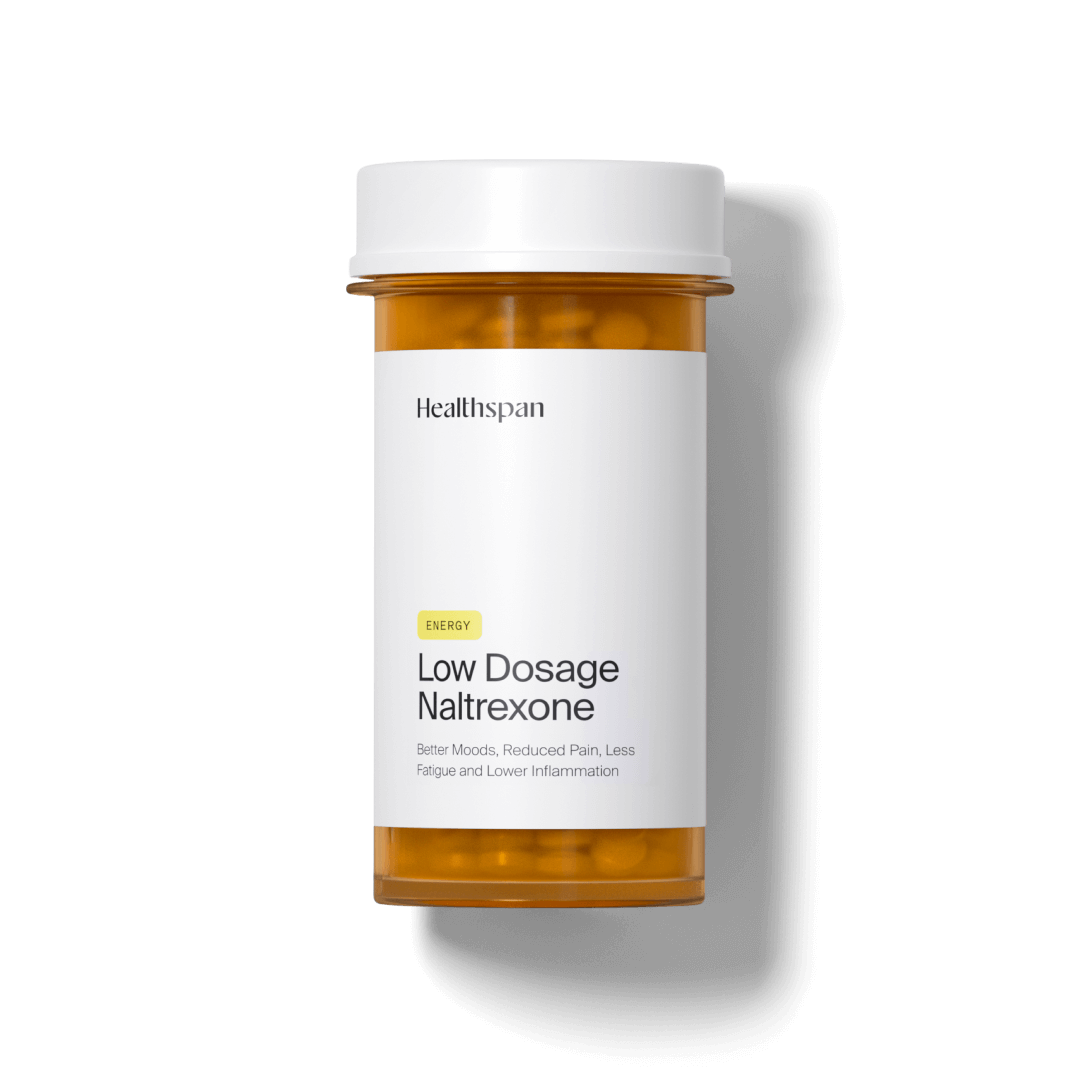
I have been using the Oxytocin for the last 3 months and definitely notice a difference in my mood, my joint aches/pains and I find I feel more relaxed day to day.
Oxytocin Nasal Spray
A science-backed prescribed oxytocin protocol to reduce stress, lower cortisol, and improve mood, heart health, and long-term resilience.
Regulates stress hormone pathways to reduce cortisol-driven inflammation while supporting healthy stress adaptation and recovery.
Reduces cortisol and stress reactivity and promotes parasympathetic activation to support mood stability and restorative sleep quality.
Targets multiple aging pathways including inflammation reduction, stress recovery, and cellular repair systems linked to healthy aging.
Doctor prescribed. Dispensed by a LegitScript-certified pharmacy. Customized for you.
Starting At
$
135
/mo
Available in two forms
Choose your delivery method


Balance isn’t a luxury. It’s how the body finds its rhythm. A natural way to support stress recovery, sleep, and energy.
The scientific way to stress relief

The highest standards of care
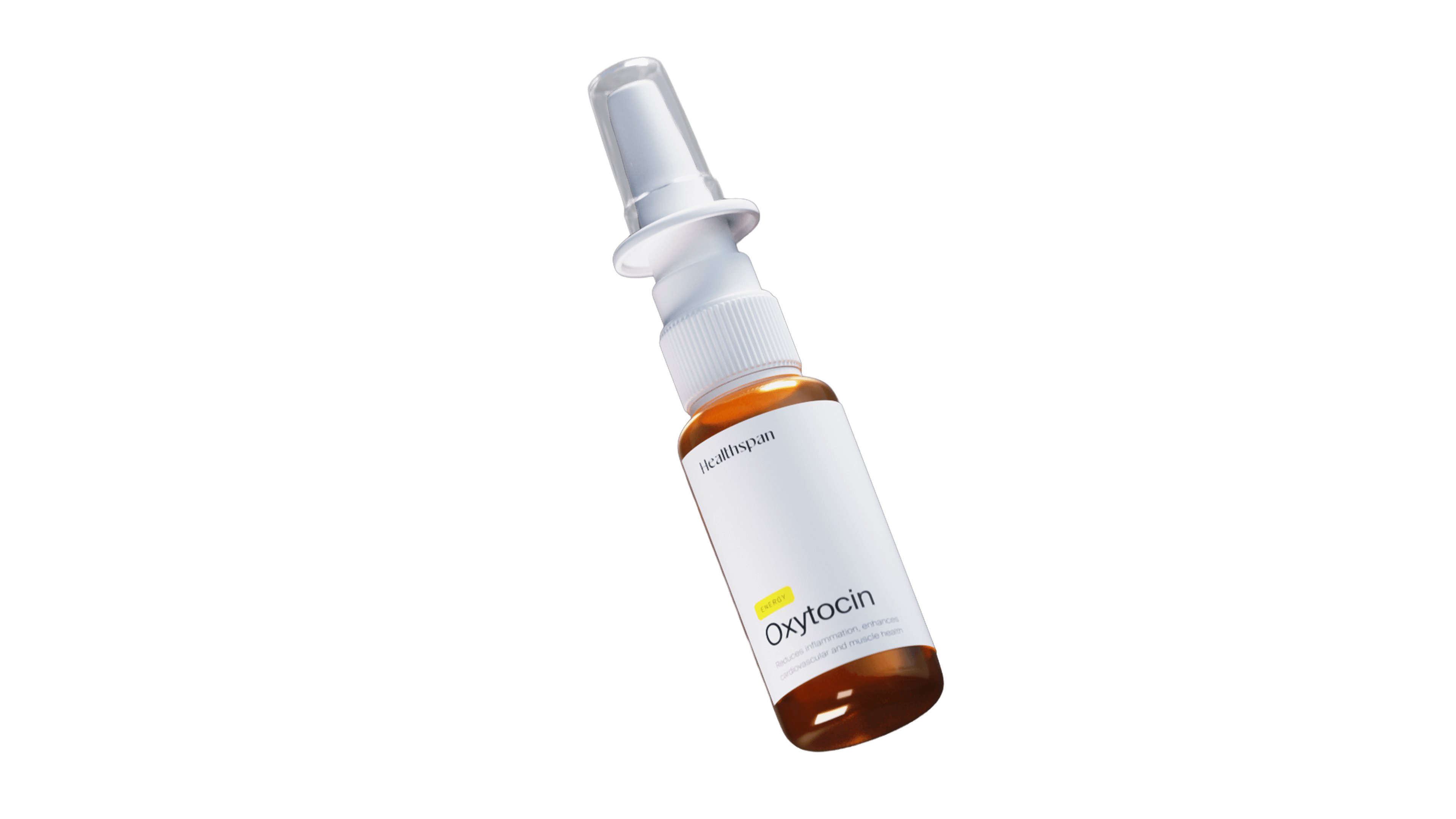
Purity is measured to confirm that nearly all of the material is the active compound. At around 99.5% purity, pharmaceutical-grade oxytocin avoids contaminants such as peptide fragments or excipients that could interfere with stability, absorption, or increase the risk of side effects.
Potency is verified every 3–6 months to confirm each batch remains within ±10% of the intended concentration. For oxytocin, this precision is especially important—too little may limit its effectiveness in mood or stress support, while too much can increase the risk of side effects. Consistent potency ensures reliable therapeutic benefits with each dose.
Trace metal testing ensures ingredients remain free from unsafe levels of arsenic, lead, and mercury. For oxytocin, this safeguard is critical. Lower-grade sources of peptide ingredients may contain impurities or trace metals that accumulate over time. Even small amounts, when taken repeatedly, can increase the risk of inflammation, oxidative stress, or long-term toxicity. Pharmaceutical-grade oxytocin keeps contaminants at trace levels defined by USP safety standards, protecting both effectiveness and long-term health.
We work with pharmacy partners who confirm through allergen and raw material declarations that this formulation is non-GMO. Avoiding genetically modified inputs helps maintain product reliability and minimizes potential sensitivities for long-term use.
Your choice of formulations
$135/ mo
Going Deeper
Cellular pathways are roads to peak performance

The mTOR Pathway
Oxytocin modulates the mTOR pathway to promote autophagy and reduce cellular senescence. This enhances cellular cleanup and maintains vitality, preventing age-related diseases and promoting longevity.

Cellular Senescence
Oxytocin reduces senescence markers and clears senescent cells while decreasing pro-inflammatory factors. This maintains cellular regenerative capacity and supports healthy aging.

Enhanced Stem Cell Function
Oxytocin rejuvenates aged muscle stem cells and activates the MAPK/ERK pathway. This supports stem cell proliferation, survival, and tissue repair, maintaining muscle function and combating age-related decline.

The AMPK Pathway
Oxytocin activates AMPK to enhance metabolic efficiency and energy homeostasis. This improves glucose uptake, fatty acid oxidation, and promotes autophagy for cellular cleanup and metabolic health.

Reduces Chronic Inflammation
Oxytocin modulates the NF-κB pathway to reduce pro-inflammatory cytokines and lower systemic inflammation. This helps prevent inflammation-related aging diseases and supports healthier aging.

HPA Axis Modulation
Oxytocin regulates the stress response by reducing HPA axis activity and cortisol levels. This decreases stress and anxiety while improving immune function and metabolic health.

The mTOR Pathway
Oxytocin modulates the mTOR pathway to promote autophagy and reduce cellular senescence. This enhances cellular cleanup and maintains vitality, preventing age-related diseases and promoting longevity.

Cellular Senescence
Oxytocin reduces senescence markers and clears senescent cells while decreasing pro-inflammatory factors. This maintains cellular regenerative capacity and supports healthy aging.

Enhanced Stem Cell Function
Oxytocin rejuvenates aged muscle stem cells and activates the MAPK/ERK pathway. This supports stem cell proliferation, survival, and tissue repair, maintaining muscle function and combating age-related decline.

The AMPK Pathway
Oxytocin activates AMPK to enhance metabolic efficiency and energy homeostasis. This improves glucose uptake, fatty acid oxidation, and promotes autophagy for cellular cleanup and metabolic health.

Reduces Chronic Inflammation
Oxytocin modulates the NF-κB pathway to reduce pro-inflammatory cytokines and lower systemic inflammation. This helps prevent inflammation-related aging diseases and supports healthier aging.

HPA Axis Modulation
Oxytocin regulates the stress response by reducing HPA axis activity and cortisol levels. This decreases stress and anxiety while improving immune function and metabolic health.

The mTOR Pathway
Oxytocin modulates the mTOR pathway to promote autophagy and reduce cellular senescence. This enhances cellular cleanup and maintains vitality, preventing age-related diseases and promoting longevity.

Cellular Senescence
Oxytocin reduces senescence markers and clears senescent cells while decreasing pro-inflammatory factors. This maintains cellular regenerative capacity and supports healthy aging.

Enhanced Stem Cell Function
Oxytocin rejuvenates aged muscle stem cells and activates the MAPK/ERK pathway. This supports stem cell proliferation, survival, and tissue repair, maintaining muscle function and combating age-related decline.

The AMPK Pathway
Oxytocin activates AMPK to enhance metabolic efficiency and energy homeostasis. This improves glucose uptake, fatty acid oxidation, and promotes autophagy for cellular cleanup and metabolic health.

Reduces Chronic Inflammation
Oxytocin modulates the NF-κB pathway to reduce pro-inflammatory cytokines and lower systemic inflammation. This helps prevent inflammation-related aging diseases and supports healthier aging.

HPA Axis Modulation
Oxytocin regulates the stress response by reducing HPA axis activity and cortisol levels. This decreases stress and anxiety while improving immune function and metabolic health.

The mTOR Pathway
Oxytocin modulates the mTOR pathway to promote autophagy and reduce cellular senescence. This enhances cellular cleanup and maintains vitality, preventing age-related diseases and promoting longevity.

Cellular Senescence
Oxytocin reduces senescence markers and clears senescent cells while decreasing pro-inflammatory factors. This maintains cellular regenerative capacity and supports healthy aging.

Enhanced Stem Cell Function
Oxytocin rejuvenates aged muscle stem cells and activates the MAPK/ERK pathway. This supports stem cell proliferation, survival, and tissue repair, maintaining muscle function and combating age-related decline.

The AMPK Pathway
Oxytocin activates AMPK to enhance metabolic efficiency and energy homeostasis. This improves glucose uptake, fatty acid oxidation, and promotes autophagy for cellular cleanup and metabolic health.

Reduces Chronic Inflammation
Oxytocin modulates the NF-κB pathway to reduce pro-inflammatory cytokines and lower systemic inflammation. This helps prevent inflammation-related aging diseases and supports healthier aging.

HPA Axis Modulation
Oxytocin regulates the stress response by reducing HPA axis activity and cortisol levels. This decreases stress and anxiety while improving immune function and metabolic health.
Hear from our patients
Reviews
251 reviews
Frequently asked questions
A naturally occurring hormone and neuropeptide involved in bonding, cortisol regulation, and cellular repair.
Oxytocin is delivered via nasal spray, typically 2 sprays daily as prescribed.
Most users feel reduced stress and mood lift within 1–3 weeks. Full benefits build over 1–3 months.
Yes. Our formulations are compounded by licensed pharmacies with clinician oversight.
Yes. It is safe alongside Rapamycin, Metformin, SGLT2, and more.
No. Avoid use while pregnant or nursing.
Yes, for certain indications. Longevity and stress-related use is off-label under clinical supervision.
Stress recovery, cortisol balance, emotional stability, cardiovascular support, and brain health.
Keep refrigerated at 35.6°F–46.4°F (2°C–8°C). Do not freeze.
Yes. It can stay unrefrigerated up to 104°F for 2 weeks. For longer travel, use an insulated bag.
No. Oxytocin is not addictive and does not create dependency. It works by enhancing natural hormone signaling and does not stimulate dopamine in the same way as addictive substances.
Oxytocin sold on marketplaces is often unregulated and may not contain pharmaceutical-grade ingredients. Our formulation is prescription-only, clinically guided, and compounded in U.S.-certified pharmacies to ensure purity, consistency, and efficacy.
Our oxytocin nasal spray is compounded at 15 IU per spray. Dosing (the number of daily sprays) varies depending on clinical goals and tolerance. Your protocol is customized and titrated under clinician guidance.
A naturally occurring hormone and neuropeptide involved in bonding, cortisol regulation, and cellular repair.
Oxytocin is delivered via nasal spray, typically 2 sprays daily as prescribed.
Most users feel reduced stress and mood lift within 1–3 weeks. Full benefits build over 1–3 months.
Yes. Our formulations are compounded by licensed pharmacies with clinician oversight.
Yes. It is safe alongside Rapamycin, Metformin, SGLT2, and more.
No. Avoid use while pregnant or nursing.
Yes, for certain indications. Longevity and stress-related use is off-label under clinical supervision.
Stress recovery, cortisol balance, emotional stability, cardiovascular support, and brain health.
Keep refrigerated at 35.6°F–46.4°F (2°C–8°C). Do not freeze.
Yes. It can stay unrefrigerated up to 104°F for 2 weeks. For longer travel, use an insulated bag.
No. Oxytocin is not addictive and does not create dependency. It works by enhancing natural hormone signaling and does not stimulate dopamine in the same way as addictive substances.
Oxytocin sold on marketplaces is often unregulated and may not contain pharmaceutical-grade ingredients. Our formulation is prescription-only, clinically guided, and compounded in U.S.-certified pharmacies to ensure purity, consistency, and efficacy.
Our oxytocin nasal spray is compounded at 15 IU per spray. Dosing (the number of daily sprays) varies depending on clinical goals and tolerance. Your protocol is customized and titrated under clinician guidance.
